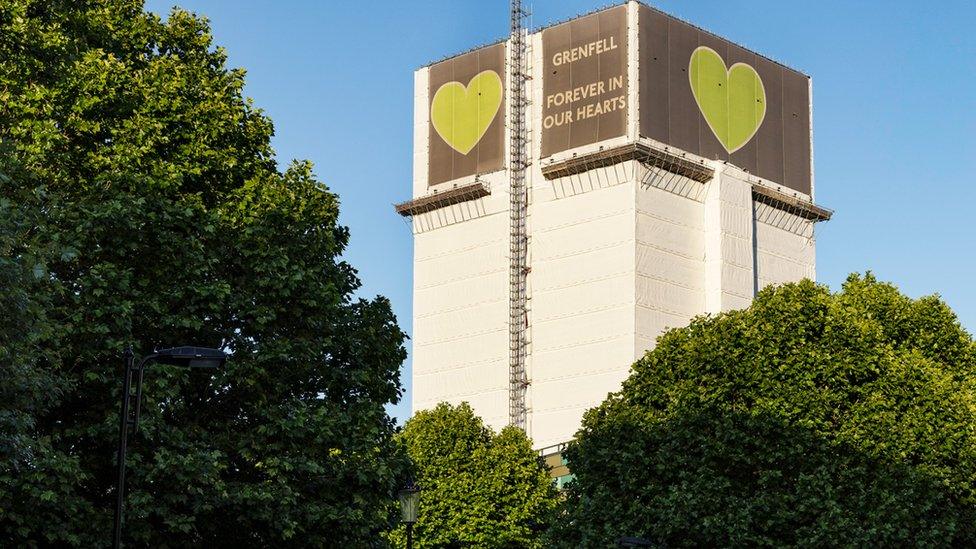Grenfell Tower fire: Civil settlement reached over claims
- Published
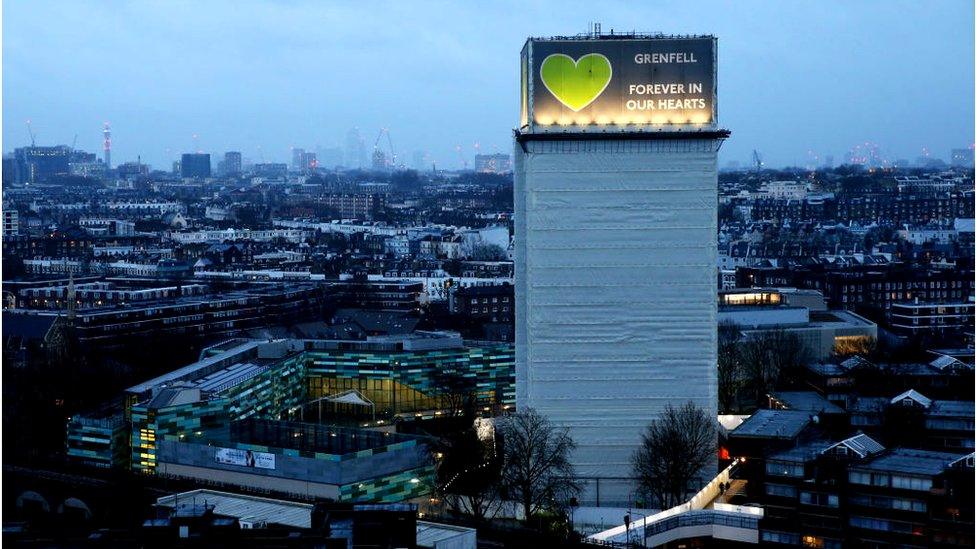
The settlement is separate from the Grenfell Tower Inquiry, which started in September 2017
Hundreds of bereaved family members, survivors and residents have agreed a settlement of civil claims arising from the Grenfell Tower fire.
The devastating fire at the west London building killed 72 people in June 2017.
Cladding giant Arconic confirmed it was among the companies involved in the High Court case and had agreed to a settlement with more than 900 people.
It has also "agreed to contribute to a restorative justice project to benefit the community affected by the fire".
The settlement is separate from the long-running inquiry, chaired by Sir Martin Moore-Bick, which is examining the circumstances leading up to and surrounding the blaze. That report is due to be published later this year.
Those who took part in the claim were represented by 14 legal firms who stressed the agreement does not impact the potential for any criminal charges to be brought in the future.
The Kensington and Chelsea Tenant Management Organisation was the organisation appointed by the local council to run its entire housing stock.
A spokesman said "a monetary settlement won't mitigate for the loss and trauma", but welcomed it as a step towards justice for those involved.
The settlement does not include all victims of the fire.
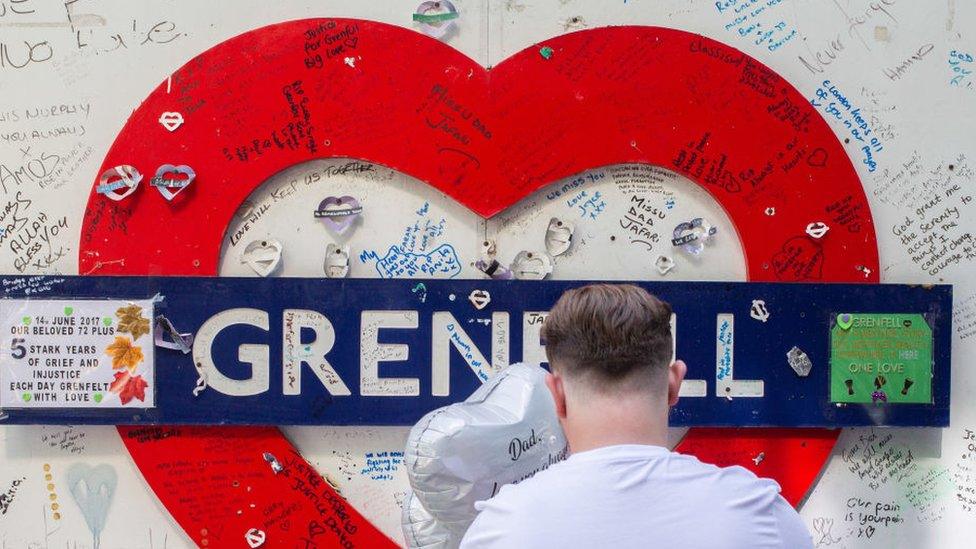
A memorial to the victims of the tower has attracted hundreds of tributes
The amount of compensation the 900 claimants are to receive will be shared out "according to their own specific circumstances", the lawyers representing the families said.
"It should be recognised that no amount of damages could ever be sufficient to properly compensate those affected," it said in a statement.
In closing submissions to the inquiry in November, lead counsel Richard Millett KC accused firms of a "merry-go-round of buck-passing" in order to protect their own interests.
The "spider's web of blame" created by the refusal of core participants to accept responsibility will make the task of the panel - which must examine the circumstances that led to the deaths - even harder, Mr Millett said.

Follow BBC London on Facebook, external, Twitter , externaland Instagram, external. Send your story ideas to hellobbclondon@bbc.co.uk, external
- Published12 April 2023
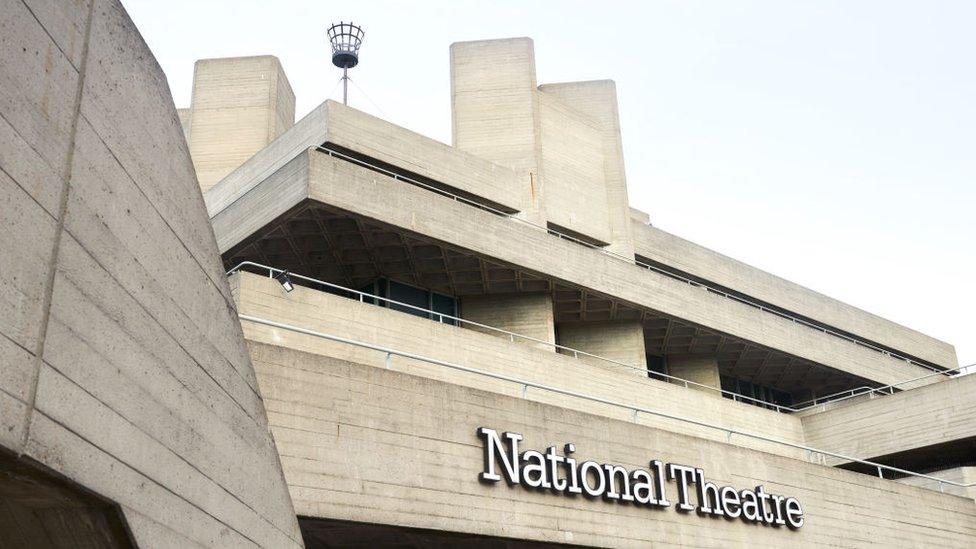
- Published29 January 2023

- Published10 November 2022
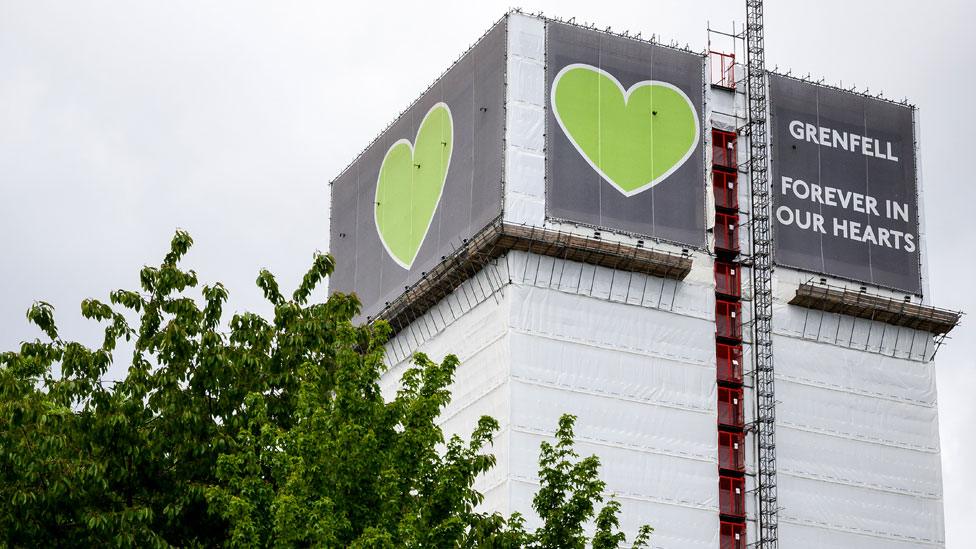
- Published9 November 2022

- Published8 November 2022

- Published7 November 2022

- Published29 July 2022

- Published14 June 2022
